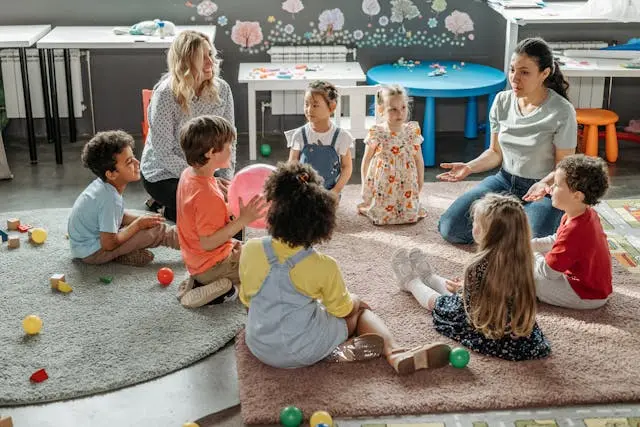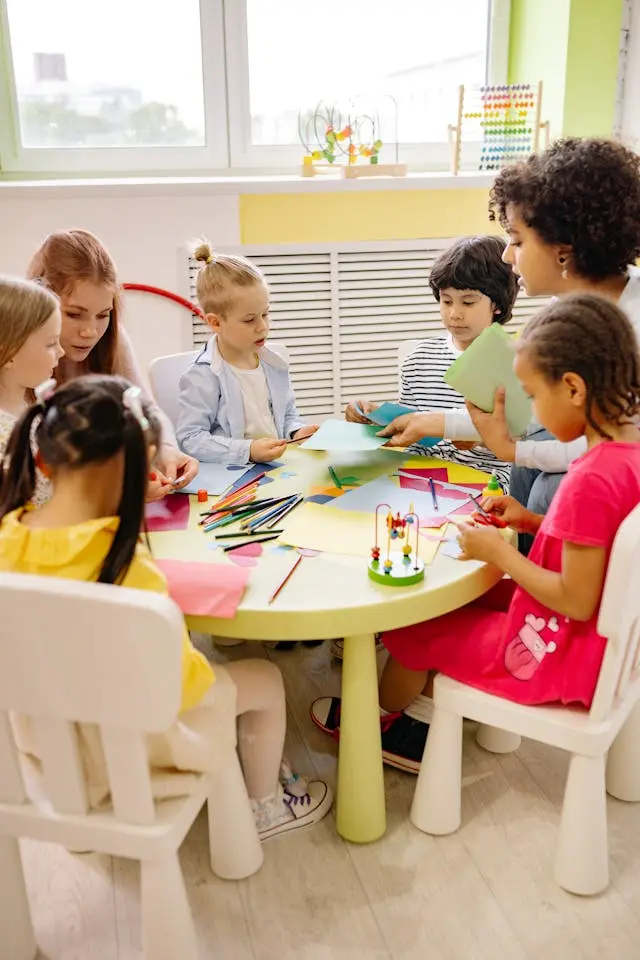LEARNING THROUGH PLAY: UNLOCKING COGNITIVE AND SOCIAL GROWTH
In today’s fast-paced world, the concept of learning through play has gained significant attention among educators and parents alike. This approach emphasizes the importance of play in fostering children’s cognitive and social development, making it a cornerstone of early childhood education strategies for 2025–2026.
The Cognitive Power of Play
Play is not merely a leisure activity; it’s a vital component of cognitive development. Engaging in play allows children to explore, experiment, and understand the world around them. Through activities like building blocks, role-playing, and problem-solving games, children enhance their memory, attention span, and critical thinking skills. These playful experiences lay the foundation for academic success and lifelong learning.

Social Skills and Emotional
Intelligencenordangliaeducation.com+2lullabyandlearn.com+2theguardian.com+2
Beyond cognitive benefits, play is instrumental in developing social skills and emotional intelligence. When children engage in group play, they learn to communicate, collaborate, and resolve conflicts. These interactions teach empathy, patience, and understanding, essential traits for building healthy relationships. By navigating social dynamics during play, children gain confidence and emotional resilience.
oceansidepediatricsjax.com+7lullabyandlearn.com+7nifplay.org+7
Types of Play and Their Benefits
Understanding the various forms of play can help caregivers and educators facilitate comprehensive development:
- Imaginative Play: Encourages creativity and abstract thinking.
- Physical Play: Enhances motor skills and overall health.
- Constructive Play: Develops problem-solving abilities and spatial awareness.
institute4learning.com+10nordangliaeducation.com+10parents.com+10
- Social Play: Fosters teamwork and communication skills.
- nhregister.com+5oceansidepediatricsjax.com+5publications.aap.org+5
Each type contributes uniquely to a child’s growth, making a balanced play regimen crucial.childdevelopmentjournal.com+10psy-ed.com+10thewildschooler.com+10
Implementing Play-Based Learning Strategies
To maximize the benefits of learning through play, consider the following strategies:
- Create a Stimulating Environment: Provide diverse materials and spaces that encourage exploration and creativity.
- Encourage Autonomy: Allow children to make choices during play to build decision-making skills.
- Integrate Play in Daily Routines: Incorporate playful elements into everyday activities to reinforce learning.
- Observe and Support: Monitor children’s play to understand their interests and developmental needs, offering guidance when necessary.
The Role of Caregivers and Educators
Adults play a pivotal role in facilitating effective play experiences. By actively participating, setting appropriate boundaries, and providing feedback, caregivers and educators can enhance the quality of play. Their involvement ensures that play remains a productive and enriching part of a child’s development.
Long-Term Impacts of Play-Based Learning
childdevelopmentjournal.com+1nhregister.com+1
Children who engage in regular, meaningful play exhibit improved academic performance, better social interactions, and heightened emotional well-being. These benefits extend into adulthood, influencing career success, interpersonal relationships, and overall life satisfaction. Investing in play-based learning is, therefore, an investment in a child’s future.lullabyandlearn.com+3thewildschooler.com+3nhregister.com+3
By embracing the principles of learning through play, we can create nurturing environments that support the holistic development of children. As we look towards 2025–2026, integrating play into educational frameworks will be essential in cultivating well-rounded, resilient, and capable individuals.










